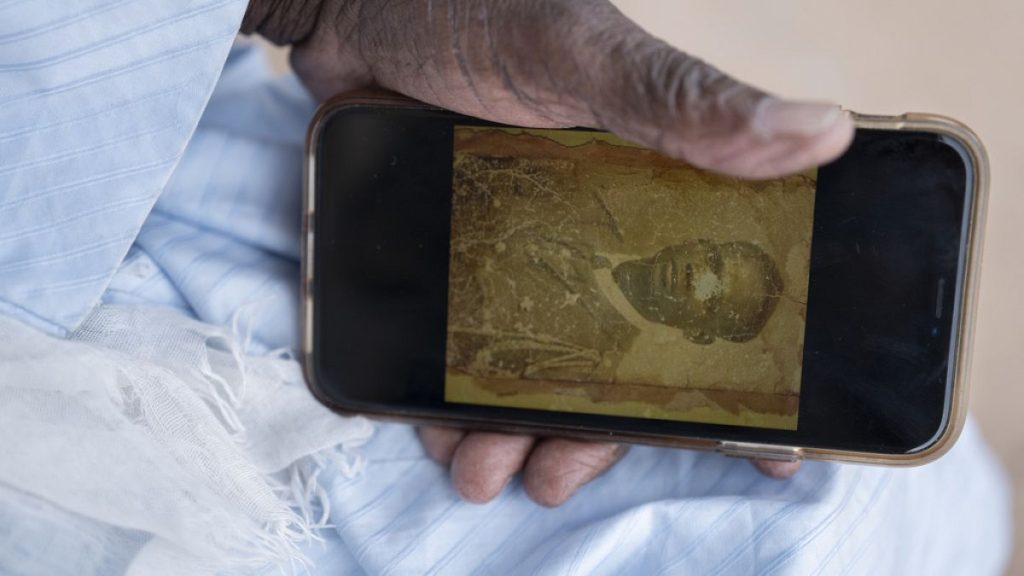Historians believe that hundreds of West African soldiers who served France during World War II were killed by the French army in 1944 after demanding unpaid wages. Biram Senghor, an 86-year-old man, frequently visits a military cemetery in Thiaroye, Senegal, where his father, M’Bap Senghor, is likely buried among the unidentified graves of these soldiers. On December 1, 1944, many of these riflemen, who were part of the “Tirailleurs Sénégalais,” were executed by French troops in what is now considered a massacre. The exact circumstances and the number of casualties remain unclear, and the 80th anniversary of the event is stirring up unresolved tensions between Senegal and France, with Senghor demanding reparations and acknowledgment of the tragedy.
Despite the long-standing nature of this history, French authorities historically downplayed the events in Thiaroye. Initial military reports from 1944 suggested that only 35 or 70 soldiers were killed in response to a supposed “mutiny.” However, contemporary historians estimate that the death toll might be as high as 400 soldiers. Following significant acknowledgment efforts, French President Emmanuel Macron recently recognized the events at Thiaroye as a massacre in a letter to Senegal’s President Diomaye Faye. He stated that the confrontation that occurred was sparked by the soldiers’ demand for their legitimate wages, indicating a grievance that led to the tragic events.
Nonetheless, interpreters of the incident analyze it differently. Many historians, including Martin Mourre, argue that what transpired on that day was an execution rather than a confrontation, pointing to the lack of weapons among the African soldiers and no injuries reported among French troops. Such differing accounts of the events underscore the confusion regarding the true nature of the massacre, compounded by the historical avoidance of accountability from French government sources. This widespread ambiguity is a testament to the ongoing struggle for truth surrounding the massacre, further complicated by the absence of critical documents regarding military activities on that day.
Complicating matters further, while some archival materials related to the Thiaroye massacre were handed over to Senegal in 2014, substantial documents, including those about the number of soldiers present, remain inaccessible. The previous Senegalese government, led by President Macky Sall, did not prioritize accessing these crucial historical documents, possibly to maintain positive diplomatic relations with France. Historians argue that the lack of transparency from French authorities contributes to the obscured narrative surrounding this pivotal moment in history, raising calls for accountability, clarity, and respect for the memory of the victims.
With the recent elections of President Bassirou Diomaye Faye, there is renewed hope for a shift in Senegal’s approach towards its colonial past, particularly regarding the Thiaroye massacre. Faye’s administration aims to reposition the historical narrative by organizing extensive commemorations of the tragedy leading up to April 2025. Political analysts note that this effort will help raise awareness among younger generations about Thiaroye, contrasting the previous administration’s relative neglect on the matter. This initiative marks a significant step towards integrating the memory of these fallen soldiers into Senegal’s national identity and public consciousness.
As Senegal grapples with the implications of its colonial history, this commemoration comes at a time when France’s influence in West Africa is waning. Several countries have recently distanced themselves from French military presence and partnerships, reflecting a broader trend of declining French authority in its former colonies. While approximately 350 French troops remain stationed in Senegal, under the guise of support, the sentiments expressed by Faye suggest a potential diminishing of France’s historic military entanglements in the region. As Senegal seeks to redefine its relationship with France, initiatives surrounding the Thiaroye massacre may catalyze broader discussions about accountability, historical memory, and the balance of power in contemporary West Africa.

